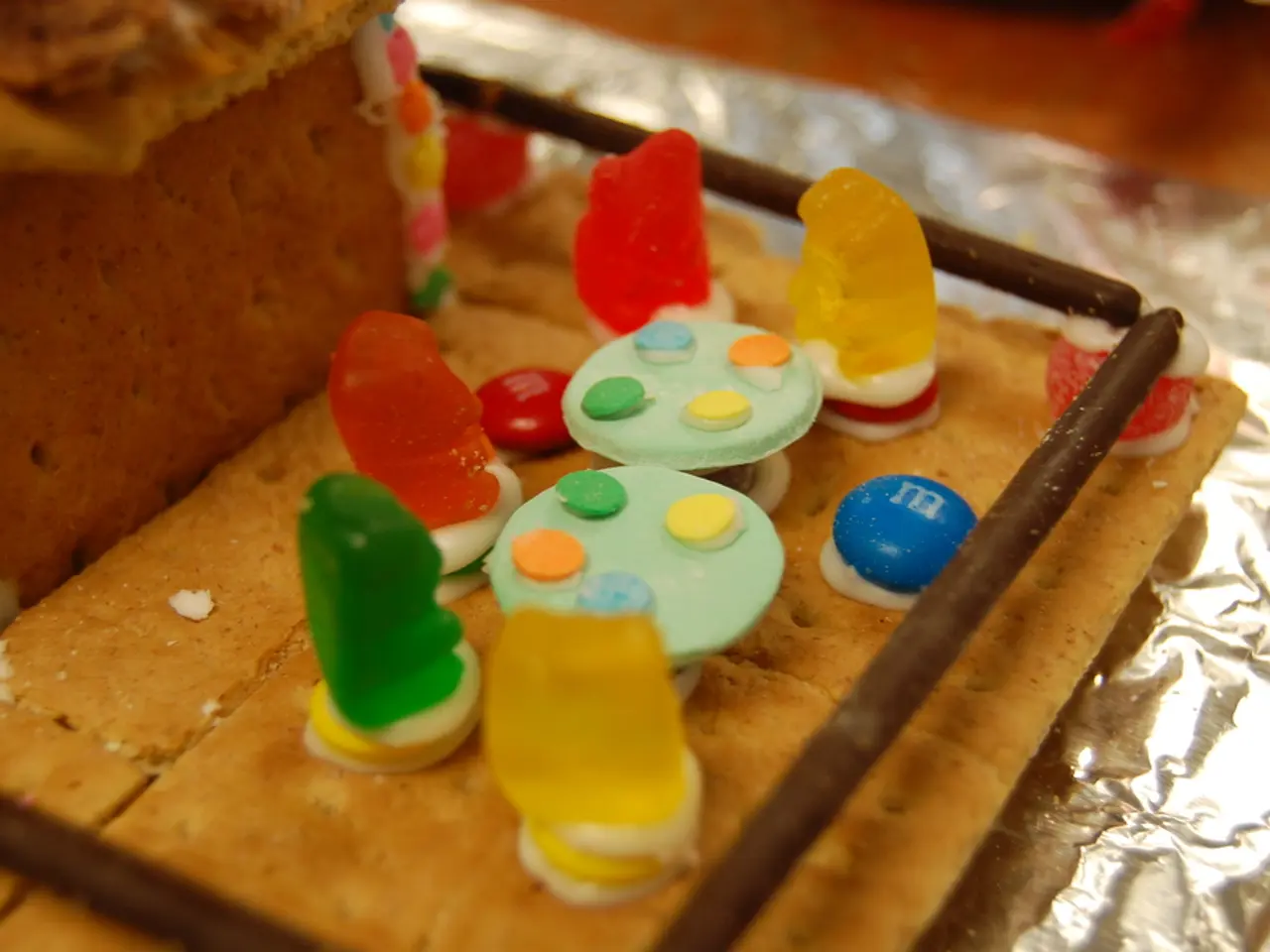Peanut Butter: Is it Still Good to Consume? Signs of a Spoiled Jar
Peanut butter, a staple pantry item for many, is known for its long shelf-life. However, it can still spoil, and understanding how to keep it fresh is crucial.
Firstly, maintaining the lid securely sealed on the peanut butter jar can prevent it from going rancid. Rancid peanut butter has a distinct sharp, bitter, or soapy odor, and eating bad peanut butter may pose unspecified risks.
Stabilizers in peanut butter play a significant role in preserving its quality. These additives, such as xanthan gum, propylene glycol alginate, and potassium alginate, enhance the creamy texture, prevent oil separation, and deter bacterial growth. Some firms also use natural antioxidants to enhance flavor and longevity in nut butters.
Peanut butter's oxidative stability decreases once the jar is opened, leading to oil going rancid. To extend its shelf-life, it's recommended to store peanut butter in a cool, dark place.
It's essential to note that the shelf-life of peanut butter depends on the brand and whether it's natural or commercial. Opened commercial peanut butter lasts 2-3 months in the pantry, 3-4 months in the fridge, while unopened commercial peanut butter can last 9-12 months in the pantry and 12 months in the fridge. Natural peanut butter may separate, but this does not necessarily mean it has gone bad.
Mold can potentially grow in peanut butter, especially on the inside of the lid, so it's crucial to check for any signs of mold before consumption. A hard, dry texture and darker color in peanut butter may indicate it has gone bad.
Unfortunately, there have been reported cases of peanut butter containing Salmonella bacteria, which can cause symptoms like enteric fever, severe stomach cramps, vomiting, and diarrhea. If left unchecked, Salmonella can be a life-threatening concern. Consuming spoiled peanut butter may lead to stomach upset, diarrhea, or vomiting.
To ensure safety, it's recommended to follow proper storage and hygiene practices when handling and consuming peanut butter. By doing so, you can enjoy this tasty spread for its intended shelf-life and avoid any potential health risks.
Read also:
- Competing strategies for addressing infertility come under scrutiny in the halls of Congress
- High school football in Ohio called off due to a legal dispute claiming players suffered violent hazing incidents
- Job opening at Save the Children organization
- Essential Techniques for Successful Snack Food Business Branding





